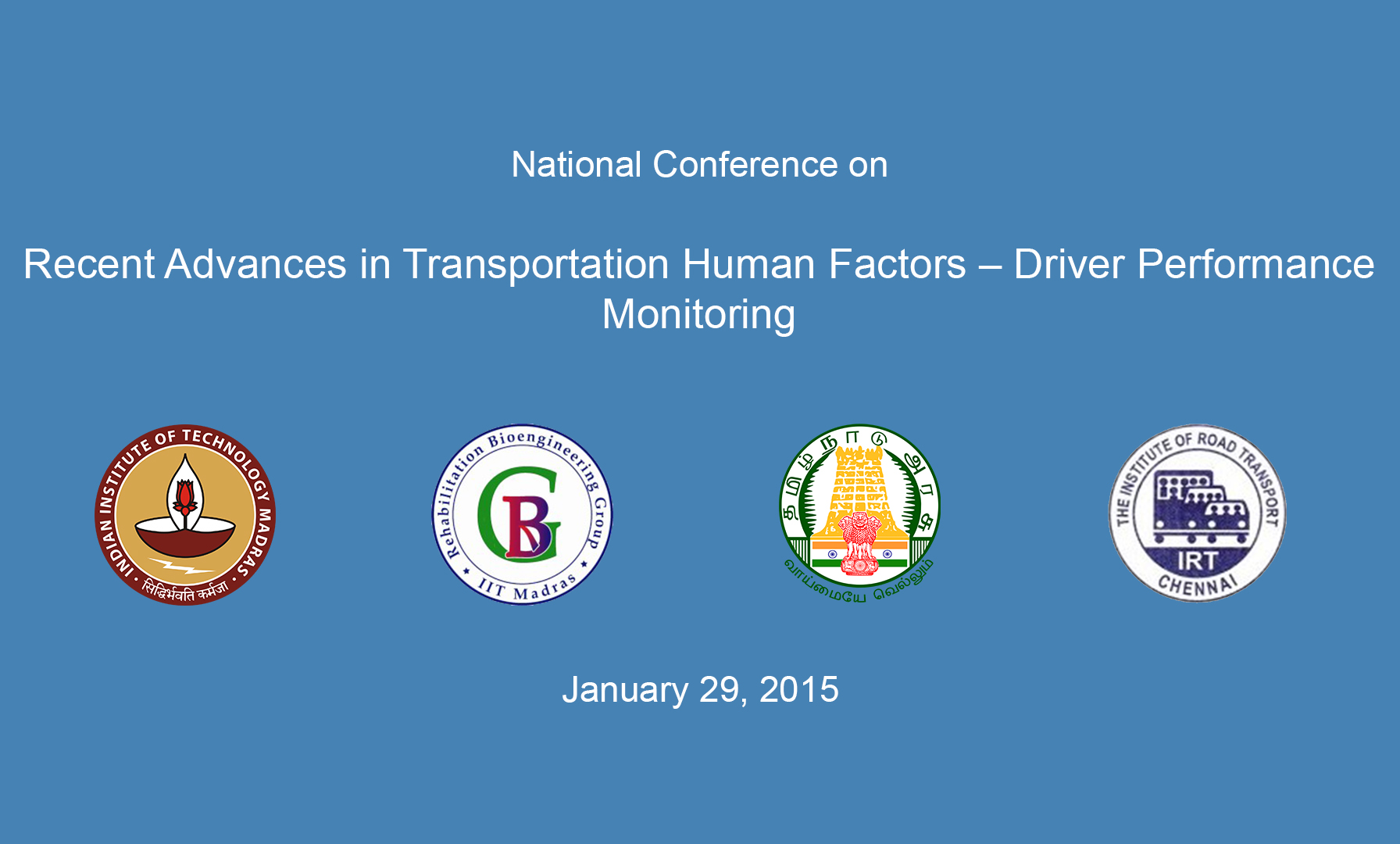
- This event has passed.
National Conference on Recent Advances in Transportation Human Factors – Driver Performance Monitoring
January 10, 2015 @ 8:00 am - 5:00 pm

There were about 3,94,982 accidental deaths reported in India in 2012. Of these, about 35.2% (1,39,034) of them have been attributed to road accidents. This unfortunate statistic put us nearly at the top of the world to have such deaths. On detail study of accidents over a period of time, researchers have attributed more than 40% of such deaths to human error or driver fatigue. With such growing number of accidents and the cost associated with it occupant and pedestrian safety are under sharp focus of Government, Non-Governmental Agencies and Industry around the world.
Driver fatigue may be defined as decline in driver’s performance. A driver’s performance and behavior is greatly influenced by physical and cognitive factors. Its contribution to individual cases is hard to measure post-facto and therefore is often difficult to conclusive state as cause of crash. Therefore it is important to know about driver’s behavior, fatigue, and performance to give appropriate interventions to avoid road accidents. Human factors engineering is used to better understand driver performance and behavior.
Human factors engineering is the scientific discipline concerned with the understanding of interactions among human being and other elements of a system. It involves theory, principles, data and design methods, in order to optimize human well-being and overall system performance.
This program is designed to give an introductory overview to human factors engineering and its application in transportation. Various state-of-art tools and techniques used to determine driver performance and behavior will be demonstrated. Application of these tools, which can be used both at the design stage as well as on-road monitoring of driver performances and behavior will be demonstrated. Some of the recent advances in addressing driver fatigue and performance in industry will also be shared in the program.
